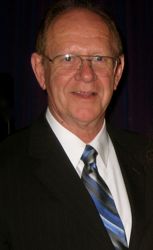• A Fragile Jury System?

On the occasion of my recent Jury Duty experience this week, I observed once again just how fragile our justice system can be. I have been called upon over the years to perform my just and right obligation to serve my community. In the early years with four children and being the only provider of my family, it was a considerable hardship to serve. As the sole provider, I had many reasons for not serving. However, in more recent years, with grown children, these reasons no longer exist.
So now, annually, it seems, or at least the last five or six years, being “summoned” has become a regular thing. In all these years, I have been seated two times, and in both cases, after being seated in the courtroom, they immediately took a recess and the attorney’s conferred in chambers and settled out of court. So I have never served on a Jury to adjudicate either the misdomeaner or a criminal case. We have the “one day or one jury rule” in our court systems here, which means, if they do not use you on the day of your service, then you are free to go. I came to serve on Monday, but waited almost the entire day, until the last thirty minutes, when I was summoned with nearly sixty others to a Jury Room. There we were informed that the accused young man reportedly 1. had a gun, 2. attempted to murder someone, 3. it had something do with a gang and 4. he allegedly caused general mehem. He denied this, as “not guilty.” Then we were told that this trial could last, at least, ten days. Then 12-15 potential jurors were let go, claiming “hardship,” for serving ten days. When I heard their reasons, I concluded any reason I could muster, would be more like “an excuse,” so I said nothing. We were to return on the following Wednesday at 10:30 a.m, which I did.
So the agenda for Wednesday was to seat a Jury of twelve, with alternates. A few new persons were added from Tuesday. They began working with 18 candidates. After the normal preliminaries of opening statements, the attorneys began to qualify and disqualify potential jurors. The attorneys spent a lot of time clarifying “innocent until proven guilty” and “deciding a case upon the evidence,” and how “being in gang is not illegal.” They further discussed “bias,” and how someone can be “presumed guilty” just by being charged. By the time the pre-emptory challenges were finally performed, it felt like the case was tried with us, and we had, not yet, heard any evidence. I do understand that each attorney wanted the best jury to win their case, but the process is rather fragile. So the elimination process began, one at time, each side would exercise their right to excuse jurors, and more would move up to take their places. The process would continue repeatedly until the attorney’s would be satisfied with their options.
Well, I finally was called up with next set of six. There was a lady in my group that happened to mention that she used a Biblical approach to evaluate the evidence. When the judge heard this, he quizzed her on what that meant. Does the Bible have more authority than the law? He asked. She affirmed that it does. He quickly called for a Sidebar with the attorneys into his chambers. Upon his return, he asked about whether she could hear the evidence and use the law to judge the case? She held her position, and said, “No, I would use the Bible.” The judge continued, “I do not often quote Scripture in my courtroom, but I am just asking you to “render unto Caesar what is Caesar’s…” And she retorted, he had not completed the verse, “and render unto God the things that are God’s.” The courtroom was quite. He dismissed her. While I agreed with what she said, I disagreed with this witness to the judge. Further, this was absolutely “no help” to the defendant. The process continued.
I had to follow this. I made “no bones” about my being a ordained minister, and a children’s evangelist, by occupation. I decided that I would answer forthrightly and not take a theological position to extricate myself from serving. So the attorneys both began with me next, each wondering if I could hear the evidence to decide the case. I assured them both that I could and that I would. They continued about whether I could be “fair.” Again, I assured them that could and would be fair. Then the Prosecuting Attorney posed a scenerio where “forgiveness” might be really important to some, so he wondered if “forgiveness would trump the law” for me? I stated this was a court of law and that this case would be settled by applying the laws to the evidence. My answer was…No! There is no evidence that “forgiveness” would apply here. I gathered that he was satisfied with my answer, because he indicated, twice, that he was satisfied with the present seated Jury, which included me. But the Defending Attorney was not satisfied and continued to remove jurors with his pre-emptive challenges, until he finally asked the Judge that I be removed. I was not surprised, I guess. I took from this, that a “minister” was not the kind of person that would benefit his client.
But it is sad to me, that the Judicial System appears to be quite fragile when a minister is not wanted to hear the facts and judge the case on the merits of the evidence. I was not trying to get out of serving. But my position, clearly, disqualified me. So much for prejudice, bias and assumptions, I thought.






Leave a Comment